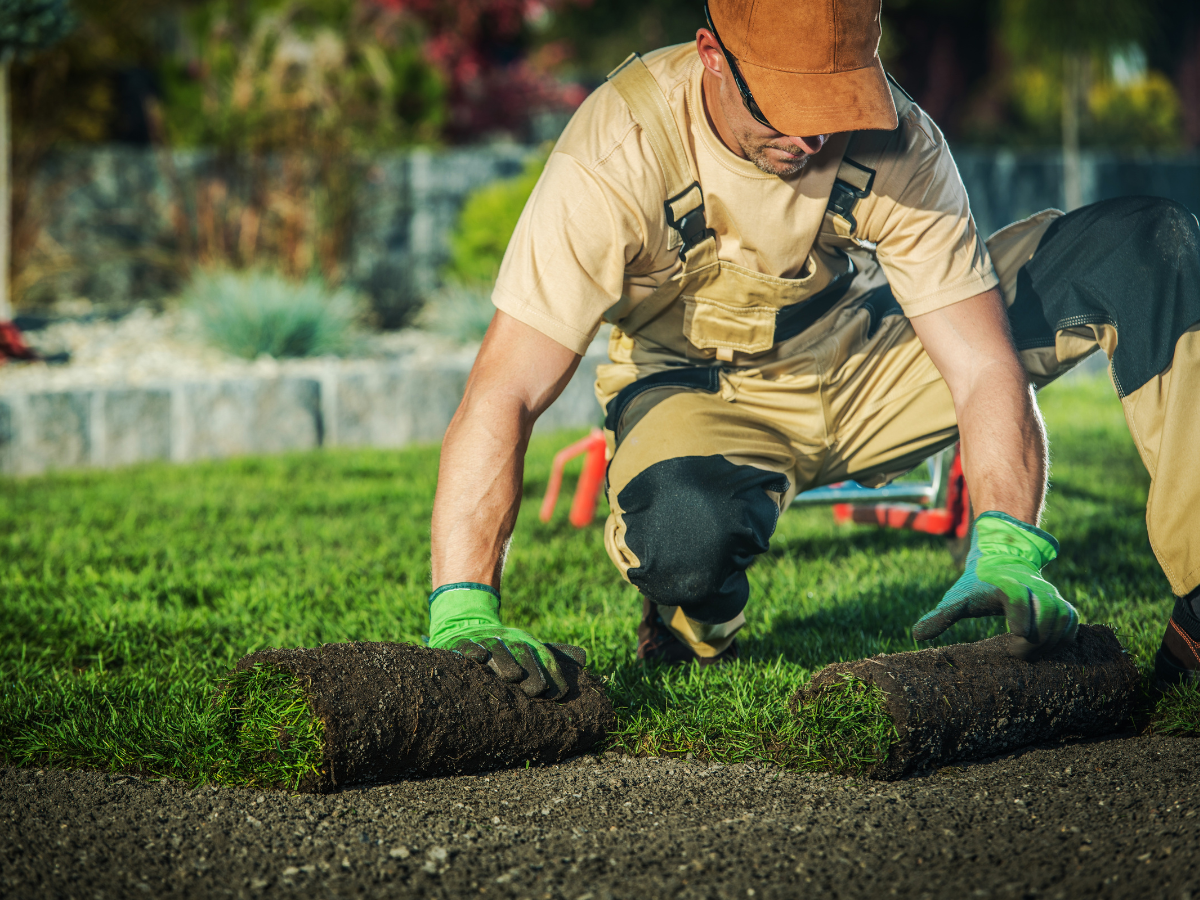
In the landscaping industry, standing out online is crucial for attracting new clients and boosting overall visibility. SEO (Search Engine Optimization) can help landscaping companies reach those seeking their services by making their website more visible in search results.
This guide offers seven essential SEO tips tailored specifically to landscaping firms, focusing on local SEO, content marketing strategies, and optimization methods that help you connect with potential customers.
Implementing these strategies might seem overwhelming, but each adds significant value to your business’s online presence. Partnering with a digital marketing expert familiar with landscaping SEO can help your firm see faster results and stay a step ahead of your competition.
Understanding the Importance of SEO for Landscaping Firms
Search Engine Optimization (also referred to as SEO) is the process of improving your website’s visibility on search engines like Google Search. When people search for landscaping services in their area, your website’s ranking can influence their choice. Higher rankings help with visibility and signal credibility and relevance, leading more clients to trust your business.
By investing in SEO, landscaping firms can:
- Expand Reach and Visibility: Feature in local search results and Google Maps to capture potential clients in your service area.
- Drive Targeted Traffic: Attract high-quality leads who are already interested in landscaping services.
- Build Credibility and Trust: Rank alongside other trusted businesses, solidifying your reputation in the community.
- Stay Competitive: Establish a strong online presence that keeps your business ahead of other landscaping firms on the first page of search results.
These benefits make SEO a long-term investment that pays dividends in steady growth and increased client inquiries.
7 Essential SEO Tips for Landscaping Firms
To help your landscaping business stand out in a competitive market, here are seven essential SEO tips that enhance visibility, attract local clients, and establish your firm as an experienced expert in the industry.
1. Local Search Optimization
Local SEO is essential for landscaping businesses because clients often search for nearby services. Optimizing for local search helps your firm appear when clients in your service area need you the most.
- Google My Business (GMB): Claiming and optimizing your Google My Business profile is key. Include accurate contact information, a detailed business description, and updated service hours. High-quality photos of your work, like completed landscaping projects, are also helpful for attracting local clients.
- Local Citations: Submit your business to reputable directories and ensure that your name, address, and phone number (NAP) are consistent. This boosts your business’s authority and credibility, which search engines use to rank local businesses.
You build a solid foundation that improves your visibility in local searches by consistently managing your online listings.
2. Conduct Thorough Keyword Research
Keyword research is necessary for understanding what potential clients are searching for. Using a keyword research tool, like Google’s Keyword Planner or SEMrush, can help identify high-value keywords related to landscaping.
- Identify Key Terms: Focus on keywords like “landscaping services near me,” “garden design,” or even seasonal phrases like “spring lawn care tips.”
- Use Long-Tail Keywords: Long-tail keywords (e.g., “affordable lawn care in [City]”) are often less competitive but highly specific. They can attract clients who are closer to making a purchase decision.
Incorporating these keywords naturally across your website’s pages ensures that your content is relevant to client searches, which boosts your ranking over time.
3. Optimize Your Website’s On-Page Elements
On-page SEO ensures that your landscaping firm’s website communicates effectively with search engines, helping you rank higher. Key elements include:
- Title Tags and Meta Descriptions: Each web page should have a unique title tag and meta description, including primary keywords. Aim for a compelling, descriptive title like “Professional Landscaping in [City] | [Business Name].”
- Content Optimization: Create high-quality, valuable content across service pages and blog posts. Use clear language, address client concerns, and incorporate your target keywords naturally.
- Image Alt Text and Filenames: Add descriptive alt text to images, especially those showcasing your work. Descriptive filenames (e.g., “garden-landscape-design-[City].jpg”) improve search visibility and make your content more accessible.
- Mobile-Friendly Design: Ensure your landscaping firm’s website is responsive and functions seamlessly on mobile devices. It’s not uncommon for potential clients to search for services on their smartphones, so a mobile-friendly site is crucial.
- Page Speed Optimization: Improve your page speed by compressing images, enabling browser caching, and minimizing code. Faster load times enhance user experience and can positively impact your search rankings, as Google’s algorithm favors fast, user-friendly websites.
A well-optimized website ranks higher and enhances user experience, encouraging visitors to explore your services.
4. Enhance Content with Relevant, Informative Blog Posts
Providing value-driven content through blog posts builds trust with your audience and demonstrates your expertise. Blog topics that address client needs, such as seasonal lawn care or landscape design trends, can attract organic traffic and help your landscaping firm stand out as an industry leader.
- Case Studies and How-To Guides: Share successful projects or DIY landscaping tips. These demonstrate your hands-on experience and offer value, positioning you as an expert.
- Seasonal Content: Write about seasonal landscaping needs, like “Preparing Your Garden for Winter” or “Best Plants for Summer.” This keeps your blog relevant and helps capture traffic throughout the year.
By regularly updating your blog, you maintain a steady flow of traffic, which search engines view positively, boosting your ranking further. For landscaping businesses aiming to grow online visibility and client engagement, specialized marketing services can provide additional support for achieving these goals.
5. Off-Page SEO Strategies
Off-page SEO involves actions taken outside your website to increase its authority and visibility, like building backlinks from reputable sites and optimizing for local search.
- Link Building: Develop a backlink strategy by building relationships with reputable sites and industry-specific directories. Consider publishing guest posts on relevant websites or collaborating with local organizations for mutual promotions.
- Customer Reviews: Encourage happy clients to share their experiences on review sites such as Google and Yelp. Positive feedback builds trust with potential prospective customers and boosts your local search rankings.
These strategies help establish your website’s credibility and build connections that support your SEO.
6. Use Advanced SEO Techniques for Competitive Edge
Advanced SEO tactics help landscaping firms stand out and provide additional ways to connect with clients.
- Schema Markup: Adding structured data (schema markup) helps search engines understand and display your content more effectively, like showcasing your business details directly in search results.
- Voice Search Optimization: With the rise of voice search, optimize for phrases like “Best landscaping services near me.” Incorporating natural language into your content ensures your site ranks for voice queries.
- Internal Linking: Link-related pages on your site to guide users through your content and improve SEO. For instance, linking from a lawn care blog to your lawn maintenance service page makes navigation intuitive.
These advanced strategies help search engines understand your site’s relevance, allowing you to rank higher in specific, competitive searches.
7. Track, Analyze, and Refine Your SEO Strategy
Effective SEO requires ongoing analysis and refinement. Use Google Analytics to track key metrics like website traffic, user engagement, and conversion rates.
- Conversion Rate Optimization (CRO): Evaluate your website’s performance and adjust elements like CTAs to encourage more visitors to become clients.
- Bounce Rate and Dwell Time: These metrics reveal how engaging your content is. High bounce rates may signal a need for better-optimized content or improved user experience.
Regular analysis lets you adjust your strategy based on real data, ensuring sustained growth.
Conclusion
Implementing these SEO tips can help your landscaping firm stand out, increase online visibility, and attract more clients. In today’s competitive landscape, simply having a website is not enough—your business needs a robust SEO strategy that combines on-page optimization, local SEO, and off-page techniques to thrive.
Advanced methods such as keyword research, high-quality content creation, and link-building play a crucial role in positioning your firm as a leader in your field. Regularly analyzing your website’s performance and adjusting strategies ensures sustained growth and success.
At Build Media Group, we specialize in SEO solutions for landscaping and home service businesses. Contact our team for expert SEO solutions customized to meet your firm’s unique needs and boost your online presence.



